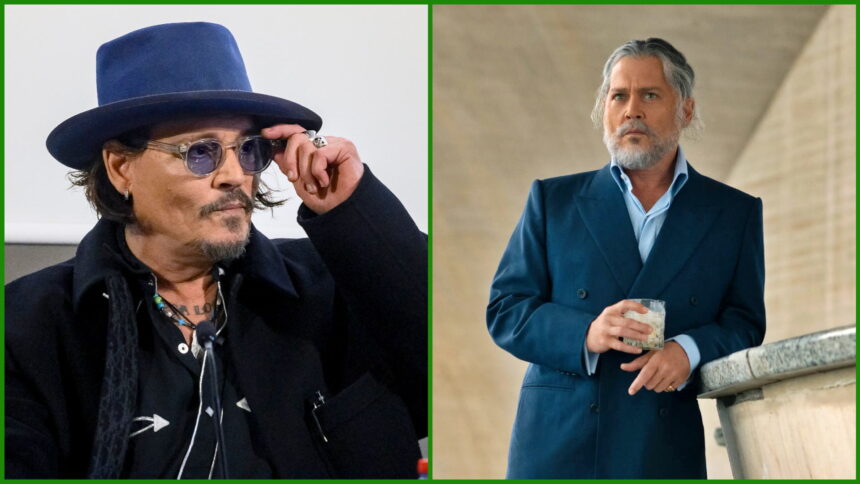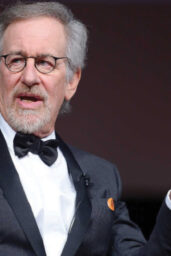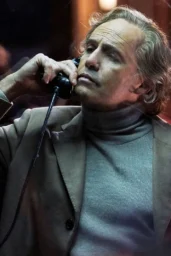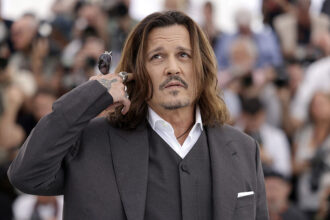Crash Test Dummy to Comeback Tour 🚢
It's been nearly a decade since Depp's life unspooled in the tabloids. Now, at 62, he re-emerges in The Sunday Times—his first major sit-down in years—calling himself a “crash test dummy” for #MeToo. That phrase—it lands like a gut-punch. He didn't seek the spotlight; the spotlight blasted him, a raw casualty in the messy intersection of fame, justice, and cultural reckoning.
He says he “sponged it, took it all in” and those closest to him—“three people” who once threw his kids in the air at birthday parties—chose safety over solidarity. It's betrayal painted in vivid domestic colors: agent-turned-traitor, friends who ghosted, and a public narrative that overran his own truth.
No Lines, Just Truth
What strikes deeply is how he frames the U.S. defamation trial: “the night before… I didn't feel nervous… if you're just speaking the truth? Roll the dice”. It's a moment of stark authenticity—less performance, more self-reckoning. He risked it all to clear the fiction of false allegations, to shield his children from bearing that burden.
From Indie Shadows to Major Studio Stage
Post-trial, Depp stayed busy but deliberately low-key. Films like Jeanne du Barry, City of Lies, Minamata, and notably Modì: Three Days on the Wing of Madness—his second directorial effort—premiered at San Sebastián in September 2024, though U.S. distribution remains uncertain.
Now comes Lionsgate's Day Drinker, directed by Marc Webb (think 500 Days, Amazing Spider‑Man) and co-starring Penélope Cruz and Madelyn Cline. Filming began April 14, 2025, in Spain—Tenerife, Teruel, and Madrid—and is slated for a 2026 release. It marks his first major American studio production since Fantastic Beasts: The Crimes of Grindelwald in 2018.
The Symbolic Weight of This Moment
Depp's narrative fits a fraught Hollywood rhythm:
- Pre-#MeToo innocence, followed by public trial by media, leading to career exile, and then a sharply public redemption arc.
- The metaphor of crash test dummy feels both personal and universal. He absorbed the blast for culture at large—a mirror to other high-profile figures under scrutiny before their day in court.
- Yet unlike many, he's clawed back not with apologies or retreat behind streaming projects, but by staring down the pipeline—returning through a big-studio thriller that'll be seen all over.
Finale: Between Isolation & Reinvention
In Vanity Fair, Depp speaks of self-imposed isolation in Soho, feeling trapped by fame and overwhelmed by “reality TV” and “woke culture”. He's no recluse but a man with tools at hand—rum, YouTube, writing—trying to rebuild without the noise.
The upcoming Alvarez film marks more than a return. It's a reckoning: can a man who's been vilified, sanitized, canceled, and eventually vindicated walk back into the mainframe and regain both creative credibility and audience love? Day Drinker will be his test tube.
The Take
This isn't just comeback theater—it's a cultural statement. Depp's story suggests that in an era of rapid online condemnation, the court of public opinion isn't always justice. Sometimes it's crucifixion.
But Hollywood loves a return story—especially one with cinematic flair. Depp's resurgence feels cinematic in itself: fall, obscuration, transformation, rise. And whether Day Drinker soars or sinks, his narrative is already captivating.
❓ Food for Thought:
- Will audiences separate the artist from the scandal?
- Is Depp defining his own narrative—or still orbiting its gravitational pull?
- And what does his journey say about Hollywood's evolving relationship with accountability, redemption, and commercial viability?











